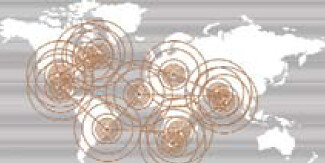 “Emergence” is a term that is often used to describe what is arising out of the Transition Town movement. I have always been puzzled by the term but the following paragraph explains it clearly and grounds it as a naturally occurring phenomena of living systems. It is a short extract from the Berkana Institute‘s “Using Emergence to Take Social Innovation to Scale”.
“Emergence” is a term that is often used to describe what is arising out of the Transition Town movement. I have always been puzzled by the term but the following paragraph explains it clearly and grounds it as a naturally occurring phenomena of living systems. It is a short extract from the Berkana Institute‘s “Using Emergence to Take Social Innovation to Scale”.
Emergence violates so many of our Western assumptions of how change happens that it often takes quite a while to understand it. In nature, change never happens as a result of top-down, pre-conceived strategic plans, or from the mandate of any single individual or boss. Change begins as local actions spring up simultaneously in many different areas. If these changes remain disconnected, nothing happens beyond each locale. However, when they become connected, local actions can emerge as a powerful system with influence at a more global or comprehensive level.
These powerful emergent phenomena appear suddenly and surprisingly. Think about how the Berlin Wall suddenly came down, how the Soviet Union ended, how corporate power quickly came to dominate globally. In each case, there were many local actions and decisions, most of which were invisible and unknown to each other, and none of which was powerful enough by itself to create change. But when these local changes coalesced, new power emerged. What could not be accomplished by diplomacy, politics, protests, or strategy suddenly happened. And when each materialized, most of us were surprised. Emergent phenomena always have these characteristics: They exert much more power than the sum of their parts; they always possess new capacities different from the local actions that engendered them; they always surprise us by their appearance.
You can read the rest of the publication here.
